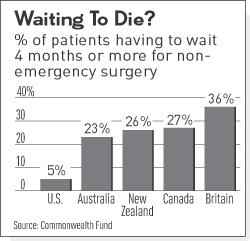chestnut
Well-Known Member
- Joined
- Oct 21, 2008
- Messages
- 1,222
No matter how much the libs don't like hearing it, there are always going to be those people who will not take the handout from the government. They have pride, and confidence in themselves and take the right steps to keep themselves out .
Obama would like everyone to be indebted to him so he can have them as lifelong dem voters.
It's plain to see. Obama had to promise so much "leftists agendas" when running to make sure people would vote for him.
Weak people will vote for the person promising the most freebies. Result - Obama elected
Obama would like everyone to be indebted to him so he can have them as lifelong dem voters.
It's plain to see. Obama had to promise so much "leftists agendas" when running to make sure people would vote for him.
Weak people will vote for the person promising the most freebies. Result - Obama elected



